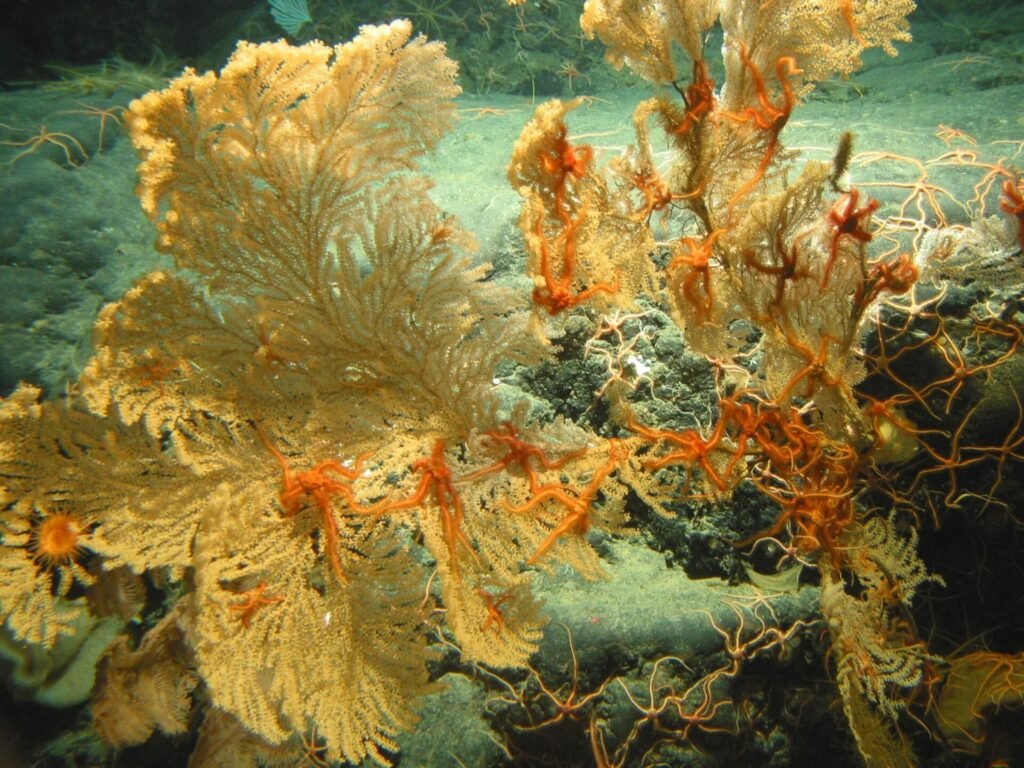An environmental group, Oceana, has filed a lawsuit against the National Marine Fisheries Service. The lawsuit alleges that the agency has failed to protect Alaska’s coral gardens from destructive bottom trawling practices.
Recently, research has revealed the importance of these underwater ecosystems. Colorful cold-water corals and sponges provide vital fish and other sea life habitats. However, they are vulnerable to climate change and bottom trawling.
The lawsuit claims that the National Marine Fisheries Service has neglected its duty to protect the Gulf of Alaska’s seafloor. This neglect violates the Magnuson-Stevens Fishery Conservation and Management Act and the National Environmental Policy Act.
In December, the North Pacific Fishery Management Council updated its policies but omitted new protections for coral gardens and sponge habitats. This omission leaves a vast area open to bottom trawling, posing a significant threat to these delicate ecosystems.
Ben Enticknap, Oceana’s Pacific campaign director, stresses the importance of incorporating new information into the council’s decision-making process. 2005, the council pioneered cold-water coral protection by closing a large marine area to bottom trawling. However, Oceana argues that more needs to be done.
NOAA’s research aims to identify and map Alaska’s coral gardens, determine the impact of human activities and climate change, and inform protection strategies. Meanwhile, a bill sponsored by U.S. Rep. Mary Peltola seeks to restrict trawl fishing that harms the seafloor, listing corals and sponges as protected resources.
This News Story was originally published by Alaska Beacon.










